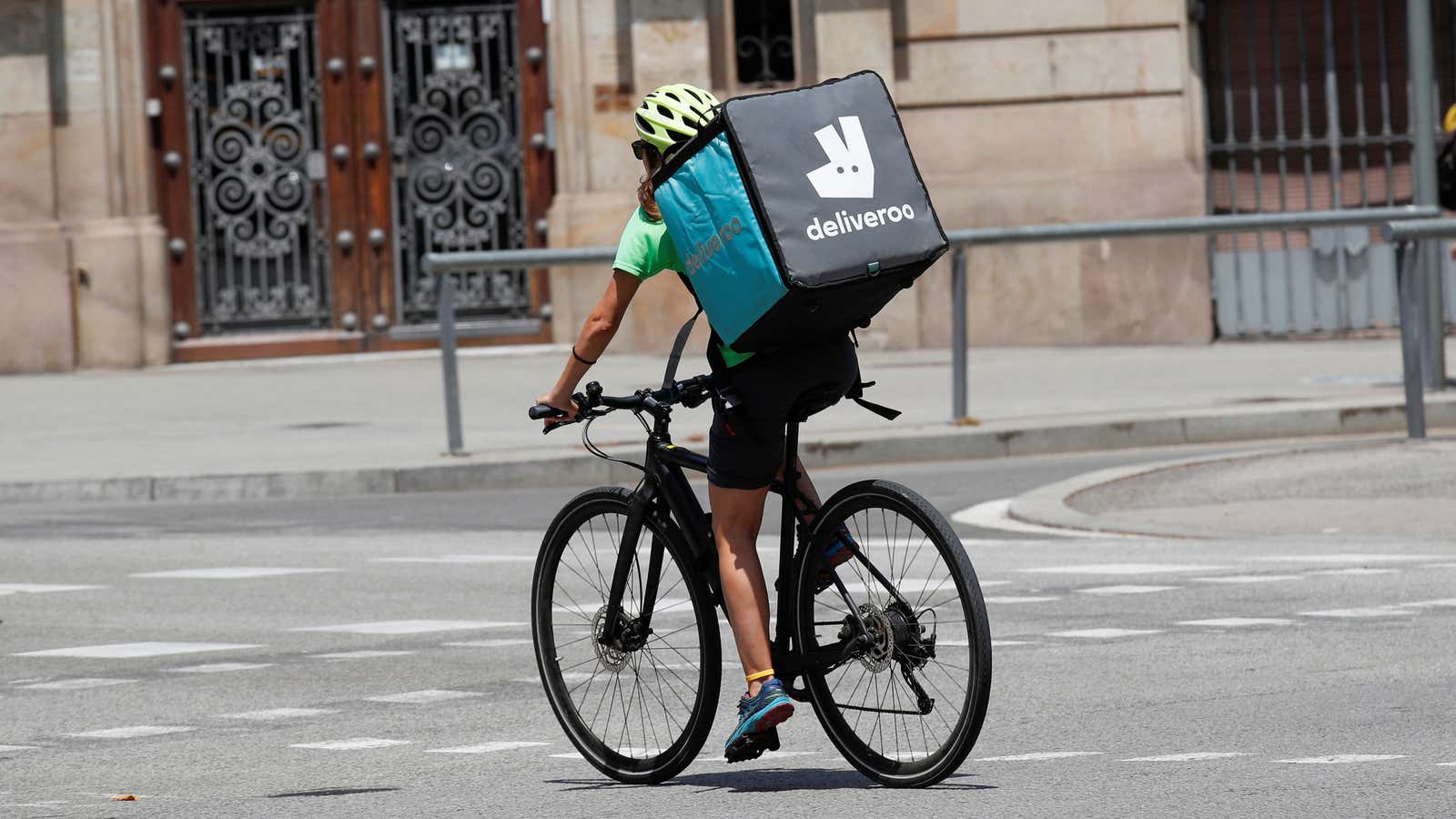Online food-delivery startup Deliveroo will exit Germany this week, the company told customers and workers by email today.
An email sent to customers said the London-based company “will no longer be delivering in Germany” from Aug. 16. It didn’t provide a specific reason for the exit. Deliveroo operates in more than 200 cities across 12 countries and a company spokesperson said it would refocus investments in other markets in Europe and Asia.
Deliveroo has about 1,100 self-employed delivery workers or “riders” in Germany and delivers from over 2,000 restaurants. The company said it isn’t ruling out a return to Germany in the future.
“We want to thank all of the riders and restaurants who worked with Deliveroo in Germany, as well our wonderful customers,” the spokesperson said by email. “It has been an honour to serve so many people amazing food from Germany’s many great restaurants and to work with so many brilliant, hard-working riders.”
A separate email sent to delivery workers, whom the company calls “riders,” said Deliveroo would provide a “one-off goodwill payment” equal to 10 days’ pay and a second payment equal to two weeks’ pay, plus any other outstanding fees owed. Deliveroo said these payments would be made to riders who had been active in the past 12 weeks, with the exact amounts determined based on their average weekly earnings over that period.
The company’s abrupt exit underscores the precariousness of working in the so-called gig economy. Like many delivery companies, Deliveroo hires its workers as self-employed or independent contractors, meaning they don’t receive the same job protections as traditional employees.
“I think I’m still in a little bit of a shocked state,” Wojtek Swieca, 29, a Deliveroo rider in Berlin for three years, tells Quartz. Swieca says he booked work shifts with Deliveroo for the following week this morning, like he normally does on Mondays, before he received the notice from the company. He says he works 25 to 30 hours a week with Deliveroo and estimates the gig makes up 80% of his income. Swieca is worried about making payments toward his bike messenger insurance and on the flat he shares with his girlfriend.
“I never would have expected that the company would pack its bags and leave Germany on such short notice,” he said. “If it were three months in advance it wouldn’t be that tragic, but four days in advance is crazy.”
Niels van Doorn, a professor of new media and digital culture at the University of Amsterdam, says Deliveroo’s announcement “in a dark way” confirms one of his main findings after researching gig work in Berlin for several months. “The gig economy is great while it lasts, as a stepping stone or stopgap,” says van Doorn, “but you don’t want to get stuck in it for too long because then shit will happen.”
Deliveroo bowing out of Germany will likely solidify the lead of Dutch-based Takeaway.com in the country. The company said it did €939 million ($1.1 billion) in sales in Germany over the 12 months ended June 30, up 67% from the previous year. Takeaway.com in December acquired the German operations of local rival Delivery Hero for €930 million. For the year ended June 30, the two companies did a combined €1.4 billion in sales. Takeaway.com operates in Germany under the brand Lieferando and estimates the German market for food delivery at €6.8 billion ($7.62 billion).
Deliveroo in May received a $575 million investment from Amazon, which recently shuttered its own food delivery operations. In an unusual move, the UK’s competition regulator ordered Amazon to pause any efforts to integrate its operations with Deliveroo while it examines the investment.
